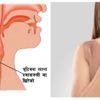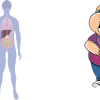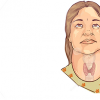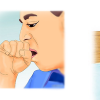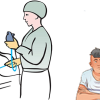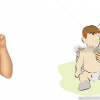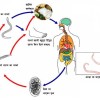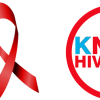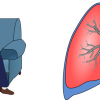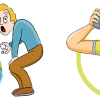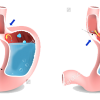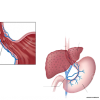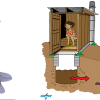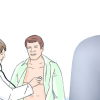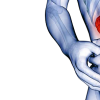Tag: cough , food pipe , gastrointestinal , heart burn , painful swallowing , sore throat , stomach , throat burning , wheezing
-
Difficulty swallowing (Dysphagia)
Dysphagia is the inability or difficulty in swallowing food or liquid. Normally, muscles in the throat (pharynx) and esophagus (food pipe) contract rhythmically to move food and liquids from mouth to stomach. Dysphagia occurs when there is a narrowing or lack of coordination of movem
-
Appendicitis
Appendicitis is the inflammation of the appendix. Appendix is a small, finger-shaped tubular structure attached to the large intestine located at the right side of lower abdomen. There is no known function of appendix in human body. When infected with bacteria or due to the blockage, the appendix gradually swells and g
-
Abdominal Pain
Pain felt between the ribcage and pelvis is called abdominal pain. It is a very common symptoms experienced by just about everyone at some point of time in their life. Abdominal pain can be generalised over entire abdomen or more commonly localised to one area. Based on the anatomic structure that gives rise to the pai
-
Lung Cancer
Lung cancer (Bronchogenic carcinoma) is the most common type of cancer worldwide and a leading cause of cancer death for both men and women. Lung cancer occurs when the normal cells of lungs abnormally change their characteristics and grow uncontrollably. Lung cancers may be
-
Neck Swelling
Any abnormal enlargement of structures between chin and clavicle bones can cause a neck swelling. Neck swelling usually occurs as a result of disease of lymph nodes in the neck or thyroid gland. Sometimes salivary glands and diseases of muscle and skin around neck may produce a swelling. A neck swelling from enlarg
-
Cough
Cough is our body’s protective response to the presence of irritants in the airway. It is a reflex action caused by the stimulation of the nerve endings in the respiratory tract by stimuli such as allergen, microbes, foreign body or excessive mucous. After the stimuli reaches the bra
-
Black stools
Black stools can be due to bleeding in gastrointestinal (GI) tract or ingestion of certain medications (iron, bismuth) or certain food (blueberries). Black, tarry, sticky and smelly stool is caused by bleeding in the GI tract, and is known as melena. Malena is a serious medical
-
Pneumonia
Pneumonia is an infection of the lungs caused by a variety of germs. These germs reach the air sacs (lowest part of airways) after inhalation, overcoming body's normal defense mechanism like nasal hairs, mucus and cough which are weakened by smoking or dust inhalation. Once in the lungs,
-
Constipation
Constipation is a common problem related to your bowel movement, when the stool is too hard, difficult to get out and occurs in small amount, less than three times a week. You might have abdominal cramps, may feel bloated or even sick if it is severe and prolonged. Why does
-
Ascariasis
Ascariasis is infestation of humans intestine by roundworm (Ascaris lumbricoides). The roundworm may reside in the guts for 6 to 24 months. The eggs are passed into the stool and under warm, shady, moist conditions they can survive for up to 10 years. The infection is transmitted by in
-
Nausea and Vomiting
Nauseas and vomiting are usually manifestation of some underlying disease that are usually non life threatening. Occasionally, it might be an indicator of underlying serious conditions like brain disease, intestinal obstruction and heart disease. Nausea is the feeling of uneasiness in th
-
Vomiting of blood (Hematemesis)
Hematemesis refers to the presence of blood in your vomit or vomiting of pure blood that originates in upper part of your gastrointestinal tract. It needs to be differentiated from spitting blood mixed saliva which arises from teeth, mouth and throat. It also need to be differentiated
-
HIV/AIDS
Introduction HIV (Human Immunodeficiency Virus) is the virus that causes AIDS (Acquired Immunodeficiency Syndrome). Infection by HIV weakens your immune system. When the immune system becomes too weak to fight, organisms that would otherwise not cause an infection in a normal person, that person is
-
Heart Failure
Heart failure means your heart is not able to pump out sufficient amount of blood into the rest of the body. It does not mean that your heart has stopped to beat which is called “cardiac arrest” (see Heart Attack for more informat
-
Diarrhea
Diarrhea is defined as increased frequency of defection (more than 3 per day) with excessive or abnormally loose consistency. Stool weights more than 200g/day are sometimes used to define diarrhoea but in the absence of abnormal consistency, weight alone is not an ideal indicator as bowel weight is influenced by high f
-
Chronic Obstructive Pulmonary Disease (COPD)
COPD is a chronic condition of the lungs that causes difficulty in breathing. It is caused by long standing exposure to irritant gas or particles most commonly by cigarette smoking. In developing countries indoor smoke exposure from firewood burning also is an important risk factor.
-
Asthma
Asthma is a chronic respiratory disease that affects your airways (windpipe). The windpipe is inflamed, narrowed and swollen that causes difficulty in breathing now and then. A person with asthma has no difficulty in breathing most of the time except during an asthma attack. As
-
Gasteroesophageal Reflux Disease
Gasteroesophageal reflux disease (GERD) is also known as acid reflux. GERD occurs is when stomach contents leak backwards (called “reflux”) into esophagus and cause symptoms or complications. Reflux is a normal process in infant, child or adult, but when it causes troublesome s
-
Esophageal Varices
Esophageal varices are abnormally swollen veins in the lining of the lower esophagus. Most of the time, esophageal varices develop due to obstruction in the portal venous circulation (blood flow through the liver) but mainly it occurs when a healt
-
Diphtheria
Diphtheria is an infectious disease caused by bacteria Corynebacterium diphtheriae. The infection affects the respiratory passage leading to sore throat and breathing difficulties. The disease produces a
-
Amoebiasis/Giardiasis
Amoebiasis is an infection of gastrointestinal tract caused by an intestinal parasite called Entamoeba histolytica. It causes dysentery, liver abscess and rarely affects lungs, heart and brain. It occurs everywhere in the world but especially in the areas where there is poor sanitation and poor socioeconomic status. Th
-
Acid Reflux Disease
When we eat food, it travels through the mouth to the food pipe (esophagus) and then to the stomach. Once in the stomach, food cannot come back up into the esophagus under normal conditions because of the presence of the lower esophageal sphincter (LES). LES is a group of fiber muscle rings at the lower end of the food
-
Peptic Ulcer Disease
Peptic Ulcer Diseases (PUD) are conditions where the lining of the stomach and the duodenum (first part of the small intestine) are damaged leading to the formation of open sores. The stomach and duodenum are in constant contact with gastric juice but the presence of a protective layer o
-
Hookworm Infestation
Hookworm infestation is a parasitic disease of humans caused by one of the two organisms- Ancylostoma duodenale and Necator americanus. It is the second most common helminthic infection in developing world. Hookworms are found in soil contaminated by human feces. The transmission of infection occurs when the following


